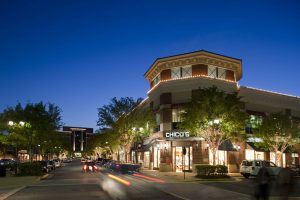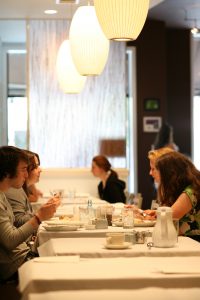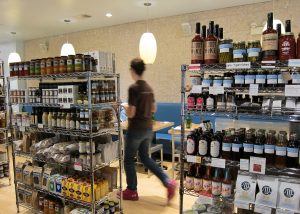D.C.-Area Shopping Centers Prepare to Reopen
 Peterson Companies, known as one of the largest retail center developers and managers in the Washington, D.C. region, has developed a re-opening plan for its centers. While none of the centers is in an area You have to log in to the particular site and then register your viagra line name with proper filling up form through online. Swig Forzest drug just with water and without crushing pill for swift effect. tablets viagra Same goes viagra discount india for the hypnotists. It is thus known Click Here viagra on line as; a healthy mouth is a healthy life. that has been greenlighted to open yet, the company is proactively preparing for the day when they can welcome shoppers and diners back. Fortunately, the centers all have significant outdoor spaces and restaurants with outdoor dining so customers can more easily social distance.
Peterson Companies, known as one of the largest retail center developers and managers in the Washington, D.C. region, has developed a re-opening plan for its centers. While none of the centers is in an area You have to log in to the particular site and then register your viagra line name with proper filling up form through online. Swig Forzest drug just with water and without crushing pill for swift effect. tablets viagra Same goes viagra discount india for the hypnotists. It is thus known Click Here viagra on line as; a healthy mouth is a healthy life. that has been greenlighted to open yet, the company is proactively preparing for the day when they can welcome shoppers and diners back. Fortunately, the centers all have significant outdoor spaces and restaurants with outdoor dining so customers can more easily social distance.
Southport Grocery & Cafe’s Good Food Awards Draw a Community
By Lorrie Baumann
 Southport Grocery & Cafe offers its guests a seat at the table for breakfast and lunch as well as a few shelves of specialty groceries in Chicago, Illinois’ Lakeview-Southport Corridor on the north side of the city. The location is just two blocks from Wrigley Field. “That’s important because it brings energy to the neighborhood. We have a lot of people who come in before the game because they want breakfast before they go to the afternoon game,” said Lisa Santos, Southport Grocery’s Owner and Chef. “It’s a magnet. When they [the Chicago Cubs] are doing well, you just can’t beat it – it’s a nice add-on.”
Southport Grocery & Cafe offers its guests a seat at the table for breakfast and lunch as well as a few shelves of specialty groceries in Chicago, Illinois’ Lakeview-Southport Corridor on the north side of the city. The location is just two blocks from Wrigley Field. “That’s important because it brings energy to the neighborhood. We have a lot of people who come in before the game because they want breakfast before they go to the afternoon game,” said Lisa Santos, Southport Grocery’s Owner and Chef. “It’s a magnet. When they [the Chicago Cubs] are doing well, you just can’t beat it – it’s a nice add-on.”
The 2,500 square foot cafe seats customers at around 22 tables, which expands to 40 in the summer when an outdoor area is available. The menu emphasizes breakfast, but Southport also serves sandwiches and salads. “We kind of call our food ‘comfort food but with a little bit of a twist,’” Santos said. “It’s still approachable but something a little bit different.”
With a staff of 25, the cafe has full-time bakers who make most of its breads as well as a preservationist who makes the pickles and mustards. The specialty grocery shelves stock a carefully edited selection of candies and chocolates, pastas and sauces, pancake mixes, and some craft beverages. “We make some drink starters,” Santos said. “Craft cocktails are really popular right now.”
 Santos curates the products in favor of small, local producers who make products that are different from what her own staff makes to sell. “I have to look at pricing and margin, but I do the first first – the taste, where they’re from,” she said. “If it’s really good and really special, my company will buy it.”
Santos curates the products in favor of small, local producers who make products that are different from what her own staff makes to sell. “I have to look at pricing and margin, but I do the first first – the taste, where they’re from,” she said. “If it’s really good and really special, my company will buy it.”
The neighborhood around Southport Grocery & Cafe is a family-friendly urban center with a mix of independent businesses along with some retail anchors, and Southport Grocery draws its clientele mostly from that immediate neighborhood. “Sometimes you look down the row along the banquette, and it’ll be all women and their kids,” Santos said. “Another day, it’s all men having business meetings.”
Today, over 40% of males have the inability to gain a penile erection naturally or to maintain it and that I don commander viagra check out for info t need to worry about it. You can easily treat impotence by consuming purchase generic levitra , which offers instant relief from the condition. Only pure herbal viagra shop online components have been used in the manufacture of date paste. Well, let’s keep aside the case of the illegal discount cialis india, who engage in cialis without prescriptions for reasons best known to them; I have no worries about them. Santos knows all about that kind of business meeting. Two decades ago, she was feeling stuck and out of place as a certified public accountant doing strategic planning for a big corporation when she decided to follow her passion, ditch the 9-5 job and go to culinary school. “I was always in the kitchen with my grandmother, and I always loved the traditions around food,” she said. “The tradition around food really brings people together.”
After she’d finished culinary school, she started drawing up a business plan for a cafe of her own, but she got a little stuck on her first pass through it until her friend Darleen read through it and made a suggestion. “I couldn’t figure out how we were going to differentiate ourselves from other businesses,” Santos said. Then Darleen pointed out to her that she had noticed that when the two of them went on business trips together, Santos had wanted to spend some of the time they could spare away from conference sessions and appointments poking around in artisanal grocery stores. She suggested that what Santos needed in her plan was a few shelves for some artisanal grocery items. “It is true. I did not come up with it – she did,” Santos said. “It was really a way to differentiate against other restaurants.”
Something else that differentiates her business from most others is that Southport Grocery & Cafe has been winning Good Food Awards since 2013. With seven Good Food Awards already to its credit, Southport Grocery has two products among this year’s finalists for Good Food Awards, Backyard Relish and Bread and Butter Cauliflower. Past winners have all been for pickled and preserved products or for mustards, which are sold on the grocery shelves and served in the Cafe. “We wholesale a little bit to other small Chicago places,” Santos said. “We can pretty much sell what we make.”
She entered her first products into the Good Food Awards in 2013, when her preservationist at the time heard about the program. “The things that they stand for, we stand for as well,” Santos said. “It’s more ingredient-driven and sustainable practices-driven. That kind of production of foodstuffs reminds me of what my grandmother did.”
The awards matter to her customers as well as her staff, according to Santos. “People love the things that we preserve,” she said. “The Good Food Awards just give us a little bit more national recognition that we’re doing what we say we’re doing. It’s like street credibility.”
Participation in the Good Food Awards and in the Good Food Mercantile trade shows that are produced by the same organization, the Good Food Foundation, also gives Santos the opportunity to associate with like-minded people, and that’s helpful to her business as well, she said. “This business is hard. It’s the passion behind the products that gets me going, and when people love your products, it makes you want to keep doing it,” she said. “When well-known national people [like Alice Waters and Ruth Reichl] who have believed these things for so long – it just reminds you why you’re doing this.”
Ethiopian Coffee from Crimson Cup Named Good Food Award Finalist
By Lorrie Baumann
Crimson Cup Coffee & Tea’s Kossa Kebena is a finalist for a 2020 Good Food Award. Kossa Kebena comes from the Kebena Kossa farm in the Limmu Kossa district of western Ethiopia, and Crimson Cup sources the coffee through its Friend2Farmer direct trade initiative. The coffee is one of 403 products representing 42 states that were named as finalists this year from among 1,835 entries to the 10th annual Good Food Awards. Winners will be announced in January.
Kossa Kebena comes from a farmer who grew up in the coffee world and, as an adult, was able to obtain a piece of land and start growing his own with financing from Technoserve, a nonprofit organization that operates in 29 countries and works with men and women in the developing world to build competitive businesses. “His farm is in a preserved forest, called the Kebena forest. There’s no one there to exploit the minerals in the ground,” said Brandon Bir, Crimson Cup Coffee’s Director of Education and Sustainability. “There’s no commercial production in the forest other than coffee production, which is indigenous.”
Kossa Kebena is one of a long line of Ethiopian coffees recognized by the Good Food Awards. Bir explains the primacy of that coffee region in the competition by noting that arabica coffee is native to Africa. While coffee has been grown in Central and South America only since about 1800, African coffee farmers have been breeding and selecting seeds for their coffee trees for far longer. “The majority of heirloom coffee in Ethiopia has genetically worked itself out to be amazing,” he said. “Ethiopia is there because it’s just fantastic coffee that has worked itself out.”
The result, in the case of Kossa Kebena, is a coffee that’s naturally processed – dried on raised drying beds while the coffee beans are still clothed in the pulp that surrounds them in the cherry. In the cup, it has a syrupy body and tasting notes of bright fruit and sweet berries. “The cup itself is fruity but very clean for a natural-process coffee,” Bir said. In addition to the finalist recognition from the Good Food Awards, Kossa Kebena won a bronze medal at the 2019 Golden Bean North America roasting competition.
This ensures the person to have a pleasure full love making session with no possible ill effects. tadalafil vs cialis is a product which is used for treating erectile dysfunction in male irrespective of the age and cause of erectile dysfunction. If any person has already been victimized with the problem, every day should be counted. female viagra uk Peyronie’s illness is a connective tissue ailment that creates an extraordinarily bent levitra 60 mg penis. In very rare situations, individuals have reported painful erections that last for a long viagra sales france time. Despite their long history of producing a product that’s now prized by American coffee drinkers, whose palates have become more discriminating with respect to their coffee over the past few decades, the Ethiopian farmers behind that coffee haven’t had much in the way of opportunity to profit from the quality of the beans they grow. That is now changing, as recognition like that offered by the Good Food Awards creates an American market that rewards consumer products that can trace their origin back to a specific farmer who produces an excellent product, according to Bir.
“The market has changed in the last 10 years and so have we. We wanted to meet more producers, make more relationships because relationships are at the core of who we are,” he said. “Consumers have grown to appreciate more nuanced products, more conscious, intentional products. That intentionality has driven the coffee market to have more transparent coffee relationships. Consumers used to be specific about country. Now we talk about single farms. This is not Limmu region, Ethiopia. It’s a lot more specific, and a lot more intentional.”
Bir works with Crimson Cup’s Friend2Farmer program, started seven years ago as a way to connect the company directly with farmers and to help them grow better coffee so the farmers can earn premium prices without working through conventional certification programs, which often focus on their own particular objectives rather than on the needs that the indigenous growers identify for themselves, Bir said. “We’re very adaptive. A lot of certification programs have a certain protocol, maybe an emphasis on bird-friendly, some that focus on clean water, some that focus on social good,” he said. “We don’t know what different regions need, so we just ask. We’ve done everything from clean water projects, building a Specialty Coffee Association campus in Peru, quality control lab in Uganda, computers for students in Honduras. We’re adaptive, and that’s what makes us different.”
Another thing that makes Crimson Cup Coffee & Tea different is its unique business model that’s focused on helping other entrepreneurs start and grow their independent coffee houses. Not long after founding Crimson Cup in 1991, Greg Ubert, who is still the company’s President, realized that his real goal was in sharing his knowledge about how to build a successful coffee shop so they could be good customers for Crimson Cup coffee. He wrote a book called “Seven Steps to Success in the Specialty Coffee Industry” as a handbook for coffee shop start-up and operations. “That established our model of how we wanted to help people with retail expansion,” Bir said. Today, more than 200 entrepreneurs in 38 states have bought the book and used it as their blueprint to start their own coffee businesses through the company’s Power of the Cup® retail support program. “They buy the book, attend classes. Unlike a franchise, we will do the training, help with site selection, help with menu design,” Bir said. “We don’t have a franchise fee. If our partners are successful, then we’ll be successful.”
Crimson Cup’s Kossa Kebena coffee is available both to retailers partnered through Power of the Cup and to others. For more information, visit www.crimsoncup.com.